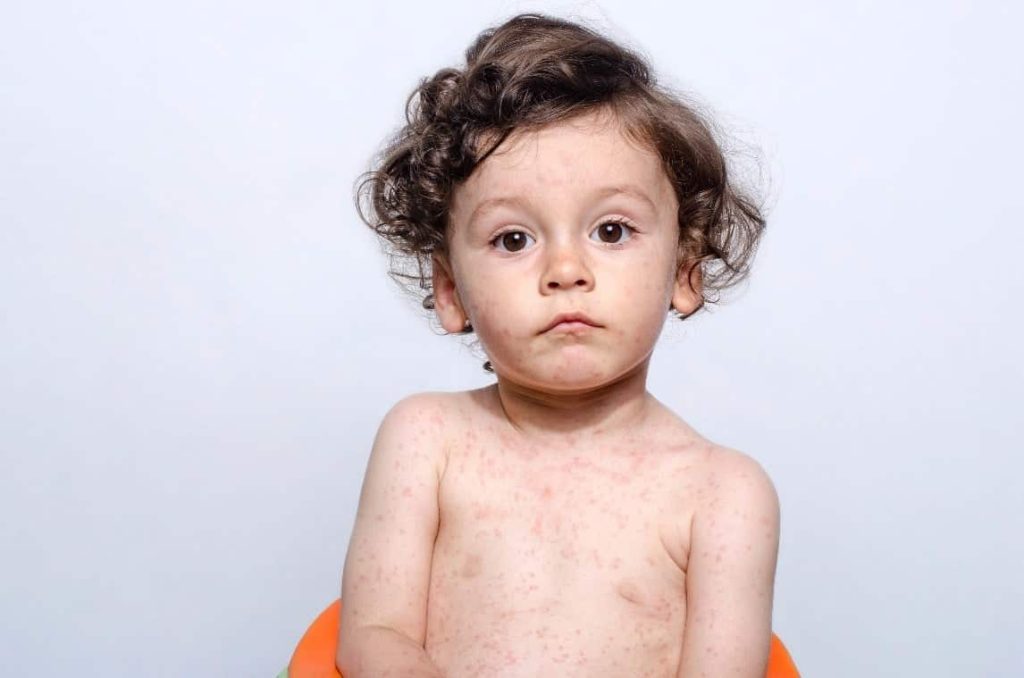Mumps, an infectious viral illness once widespread, is now effectively controlled in many regions thanks to vaccination. However, mumps outbreaks can still occur, especially in communities with low vaccination rates.

Mumps: Understanding the Basics
Mumps is caused by the mumps virus, a member of the Paramyxoviridae family. It primarily affects the salivary glands, particularly the parotid glands located near the ears, resulting in their characteristic swelling.
Mumps Symptoms
While some people with mumps have mild or no symptoms, the illness typically manifests with:
- Swollen and tender salivary glands: Most commonly affecting the parotid glands, causing the characteristic “chipmunk cheeks” appearance.
- Fever: Typically low-grade but can be higher.
- Headache
- Muscle aches
- Fatigue
- Loss of appetite
Mumps Transmission
The mumps virus is highly contagious and spreads through respiratory droplets produced when an infected person coughs or sneezes.
Modes of Transmission:
- Direct contact with saliva: Kissing or sharing eating utensils or drinks with an infected person.
- Airborne droplets: Inhaling respiratory droplets released when an infected person coughs or sneezes.
- Touching contaminated surfaces: The virus can survive for a short time on surfaces, and if you touch a contaminated surface and then touch your mouth, nose, or eyes, you can become infected.
Mumps Prevention: Focus on Vaccination
The most effective way to prevent mumps is through vaccination with the measles-mumps-rubella (MMR) vaccine. The MMR vaccine is highly effective, typically given in two doses:
- First dose: Between 12-15 months of age
- Second dose: Between 4-6 years of age (before starting school)
Mumps Treatment
There’s no specific antiviral treatment for mumps. Treatment primarily focuses on managing symptoms and preventing complications:
- Rest: Get plenty of rest.
- Pain relief: Over-the-counter pain relievers, such as acetaminophen or ibuprofen, can help alleviate fever and pain. Note: Avoid giving aspirin to children or teenagers.
- Fluids: Stay hydrated by drinking plenty of fluids.
- Soft diet: Opt for soft foods that are easy to chew and swallow if your salivary glands are swollen.
- Cold compresses: Applying cold compresses to swollen glands can help relieve pain and discomfort.
Mumps: MedicW’s Role in Preparedness and Response
MedicW offers a range of medical consumables to support healthcare professionals and individuals in managing mumps cases and outbreaks:
- Protective Apparel: Including gowns, masks, and gloves for healthcare workers and those in close contact with infected individuals.
- Respiratory Protection: MedicW provides face masks to help reduce the spread of respiratory droplets, particularly in healthcare settings.
- Sampling Swabs: Essential for collecting saliva samples for laboratory testing and confirmation of mumps diagnosis.
- Syringes and needles: If vaccination campaigns are needed to increase community immunity levels, MedicW provides high-quality syringes and needles to administer vaccines.
Mumps: FAQs
1. Is mumps a serious illness?
Answer: For most people, mumps is a mild illness. However, it can sometimes lead to more severe complications, especially in adults, such as:
- Meningitis: Inflammation of the membranes covering the brain and spinal cord.
- Encephalitis: Inflammation of the brain.
- Orchitis: Inflammation of one or both testicles, potentially leading to sterility.
- Oophoritis: Inflammation of the ovaries.
- Hearing loss
- Pancreatitis: Inflammation of the pancreas.
2. What should I do if I suspect I have mumps?
Answer: Consult your doctor if you experience symptoms of mumps. Avoid contact with others to prevent further spread, and let your doctor know if you have been in close contact with anyone with mumps.
3. Can I get mumps even if I’ve been vaccinated?
Answer: While the MMR vaccine is highly effective, it’s not 100% foolproof. Some vaccinated people can still get mumps, but the illness is typically milder than in those who are unvaccinated.
4. Can pregnant women get mumps?
Answer: Pregnant women can get mumps. If a woman contracts mumps during pregnancy, it can increase the risk of miscarriage, especially during the first trimester. Pregnant women who are unsure about their immunity to mumps should consult their doctor.
5. Is there a cure for mumps?
Answer: No, there is no specific antiviral cure for mumps. Treatment focuses on relieving symptoms and preventing complications.
6. What is the incubation period for mumps?
Answer: The incubation period, the time between exposure to the virus and symptom onset, for mumps is typically 16-18 days, but it can range from 12-25 days.
Mumps: Conclusion
Mumps is a preventable viral illness. The MMR vaccine has dramatically reduced the incidence of mumps in countries where it is part of routine childhood immunization programs. However, maintaining high vaccination coverage is crucial to protect individuals and communities from outbreaks.
MedicW remains committed to providing high-quality medical supplies that are essential for mumps preparedness, diagnosis, and patient management. By partnering with healthcare professionals and supporting public health initiatives, we can work together to control the spread of this contagious illness and protect vulnerable populations.
MedicW is committed to being your trusted partner in providing high-quality medical consumables. Explore our comprehensive range of products and discover how we can support your healthcare needs. Visit us at medicw.com or contact our team at [email protected].
Link to this article: Understanding and Preventing Mumps
